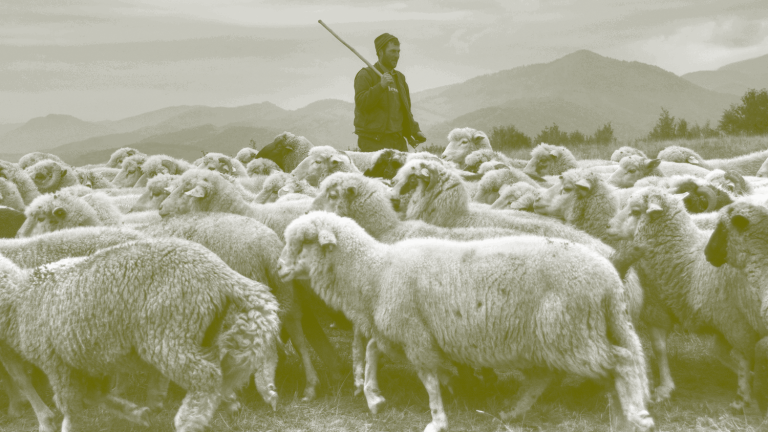FOURTH SUNDAY OF EASTER, YR B
Acts 4:8-12; Ps 118
1 Jn 3:1-2; Jn 10:11-18
THE GOOD SHEPHERD, AN EXAMPLE FOR GOOD LEADERSHIP
For the last couple of weeks, our gospel readings have recounted Jesus’s appearances after his resurrection and his interactions with his disciples after the resurrection. On this fourth Sunday of Easter, we shift our attention to the identity of Jesus. In today’s gospel, Jesus identifies himself as the “good shepherd”.
Generally, in the Bible, the term “sheep” is used as an image of the people of God, and the “shepherd” is God himself, or the leaders he has set over His people. Psalm 23 is a very popular Psalm about God as a shepherd.
In our gospel for today, Jesus contrasts himself with a bad shepherd. He calls himself the good shepherd. In fact, this is the only place where the adjective “good” is used with shepherd and it is in reference to Jesus alone.
Ezekiel 34 also talks about the shepherds of Gods people. Before the Temple was destroyed the leaders and priests were described as wicked shepherds who have “fed off their milk, worn their wool and slaughtered the fat ones but the sheep you have not pastured. You did not strengthen the week nor heal the sick nor bind up the injured” (Ez 34:3-4). God then promised to take charge of the caring for the sheep himself and he will provide one shepherd over them who will give them better care.
In our gospel today, in the context of the preaching in Jerusalem, Jesus is like the new Ezekiel. But he does not condemn the leaders; instead, he draws the contrast and reflects on himself as the good shepherd who will give better care to the sheep. This identity of Jesus as the good shepherd has some implications for leadership in general, in the Church, and politically.
He is the good shepherd of Israel; he will not only protect the sheep but lay down his life for them. He is not a hired man who is getting paid for caring for the sheep. The hired man will run and abandon the sheep when danger approaches. Any leader who only looks out for his own safety and comfort first, is a “hired man”. Such a leader does not reflect a true and good shepherd.
Jesus is a good shepherd because he knows his sheep. (Jn 10:14) In the Ancient Near East, the shepherds spent so much time with their sheep that their flock came to know them intimately. So, when the master calls out, even amongst other voices, the sheep can recognize the voice of their master and come to him. Jesus takes knowledge of the sheep beyond the intellectual level. He knows his sheep as intimately as he knows his Father. He invites the sheep to this relationship with the Father. All true disciples of Jesus have a true relationship with the Trinity.
All leaders must seek to know their followers and members personally. For this kind of leader, the follower is not just a name on paper or a tax number. Every leader must make it a point to get close enough to their flock to know their fears, anxieties, hopes and joys. They should have great empathy, otherwise, they cannot die for their sheep. When the priest has deep knowledge of his parishioners, the Church becomes truly the family of God. When knowledge is absent and there is only the provision of needs, the Church merely becomes an institution that provides services or just another social welfare agency.
The good shepherd leads the flock in spiritual communion. Jesus says he knows the sheep in the way that the Father knows him, and he knows the Father (Jn 10:15). There cannot be a true leader who has no relationship with Jesus. Any leader who wants to be like the true shepherd must know Jesus, the good shepherd himself. Such a person must build up his own spiritual life. The good shepherd is the one who principally leads the sheep into spiritual communion with the Lord and with one another. The shepherd must know the Lord and lead the sheep to know him.
The Good Shepherd cares for all sheep. Jesus said he is the good shepherd because he cares for the sheep that do not belong to this fold, and he must bring them together so that there will be one flock and one shepherd (Jn 10:16). This,in the context of Ezekiel 34, refers to the inclusion of Gentiles into the fold, so that there is but one shepherd and one flock. How does Jesus do this? He lays down his life for his sheep.
It is the responsibility of all leaders to foster unity and oneness. Leaders in the Church must lead in healing the divide and disunity within the Church, among churches and amongst people. Political leaders should lead in a way as to foster unity among their people, among different ethnic/tribal and religious groups, as well as unity among all neighbouring nations. This is no easy task. But the good shepherd himself is with all leaders to comfort them when the going gets tough. (Ps 23:4b).
May the good shepherd lead us to the Father. May all of us find an example of good leadership to follow in Jesus.
Be a leader wherever you find yourself.
Amen.
God bless you
By Rev. Fr Delight Arnold Carbonu




